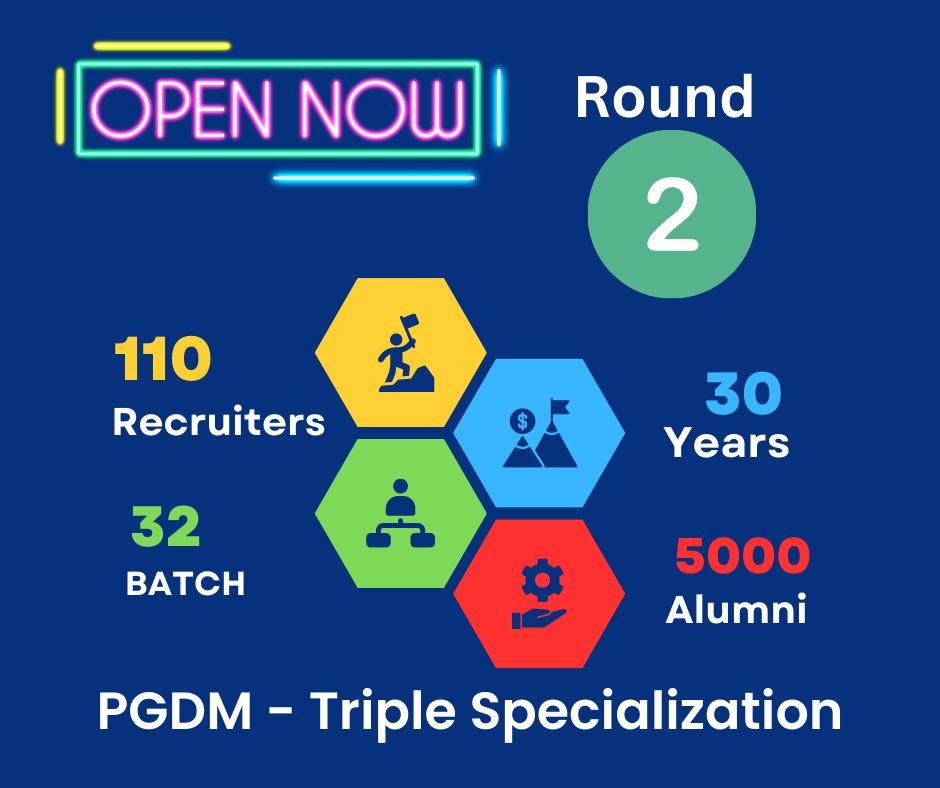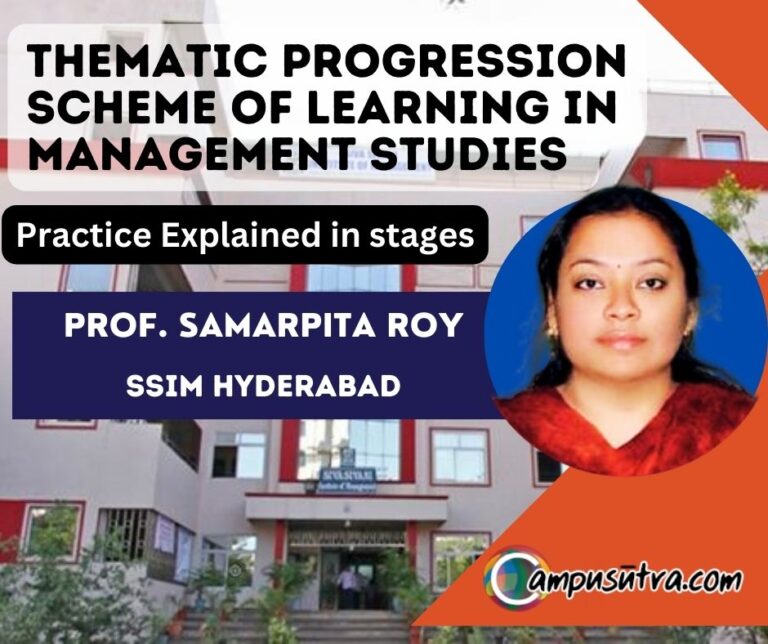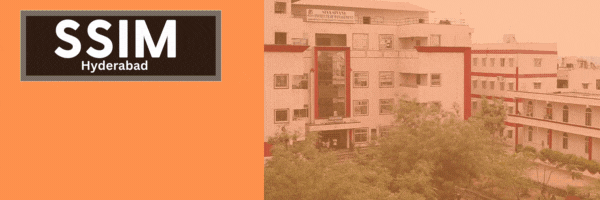Siva Sivani Institute of Management (SSIM), Hyderabad has been imparting its courses following its own unique Thematic Progression Scheme of Learning over the years. Its unique THEMATIC PROGRESSION SCHEME is spread across the entire duration of its Post Graduate Diploma in Management (PGDM) course irrespective of the specializations that the students choose to pursue. “Practical Learning is Fun with Thematic Progression”, that’s what faculty members at SSIM believe.
What is Thematic Progression Scheme of Study?
Once the students are on the campus, they are oriented towards picking up the fundamentals, theories, and concepts of the competitive management course. This orientation helps the students to understand the concepts in an easy and comfortable way. Once the students are completely ready to take on the competitive Management Course, they automatically progress towards the next level of Thematic Progression of Study. These stages have been named according to the level of integration of the students with the real corporate life they are supposed to face beyond this course. The stages of the Thematic Progression Scheme of study and learning followed at SSIM are:
- Corporate IMPLEMENT Stage: As the name suggests, the 1st Term of PGDM focuses on motivating the students towards implementing the ‘corporate thought processes’ in their day to day understanding of the courses and theories in all such courses. Apart from regular subjects, the students are supposed to undertake some practical sessions under the Managerial Competency Development Segment. The practical sessions of this stage include Experiential Learning and Company Facts Presentation. The students need to
 visit a particular industry in order to observe, learn, and experience the actual corporate life in order to complete their Experiential Learning Session.
visit a particular industry in order to observe, learn, and experience the actual corporate life in order to complete their Experiential Learning Session.
Every student undertakes research on a particular corporate organization and present the facts to the entire class in an innovative manner. This helps the student to start understanding and implementing the corporate idea, mannerisms, and thought process in their presentations and holistic learning process.
2. Corporate INTEGRAL Stage: This is the 2nd term of PGDM where the students are expected to integrate their understanding of the corporate organizations into their expressions and activities too. Therefore, in this term, the students take up subjects such as Human Resource Management, Marketing Management, and Corporate Finance and understand the basic divisions and functions of the organization that makes this organization work and function.
Further, the students are also supposed to conduct an individual Book Review Session and submit a critical review of the same to the class. The students are also supposed to get involved with a social cause or organization in order to understand the problems of the society getting down to the grass root level and suggest some measures and ideas that can help the cause or the organization to achieve success.
3. Corporate INTRINSIC Stage: During the 3rd Term, the students are expected to internalize the fact that they are made to work in the corporate. At this stage, the students take their learning a notch higher by studying various conceptual subjects. Along with these subjects, the students are required to research and critically evaluate any industry of their choice and in a way prepare them to take up the challenging role of becoming summer interns in an organization working in such industries. Business organizations are gradually becoming an intrinsic aspect of the lives of the students.
4. Corporate ADEPT Stage: This is the 4th term for the PGDM students at SSIM. They start this term after coming back from their summer internships. As the name of this stage suggests, the students are now expected to be adept or skilled as professionals. They are now introduced to the specialization papers as it is expected that they would now be in a position to understand their strengths, weaknesses and passions related to their professional venture. They are also asked to individually evaluate and present company review sessions and also conduct detailed Industry Internship Projects to summarize their learning and outcomes from their summer placements.
5.Corporate ASTUTE Stage: The 5th term of the PGDM course continues with the specialization papers while the students are expected to transform into astute professionals. They are supposed to assess the situations and convert any given situation into an advantage for themselves, the organization, and the society at large. A test of this is taken through their Managerial Competency Development Activities that includes reviewing a well-written Management Article and also carefully planning and presenting their Specialization Projects. They have to present as professional consultants do.
6. Corporate ACE Stage: The last and the final term of PGDM is just a product trial when students are ready to take their flights and prove that they are masters of their subject, learning and understanding.
This is a stage when the students are equipped to take on the corporate world, challenges within the organizations and performance as per their roles and KRAs.
This Thematic Progression of Learning has been practiced at Siva Sivani Institute of Management.
About SSIM : Siva Sivani Institute of Management (SSIM), Hyderabad, is a 30 year old management institute which offers a 2 year full-time PGDM – Triple Specialization, PGDM Marketing, PGDM BIFAS (Banking, Insurance and Financial Services), PGDM General program and PGDM Business Analytics. Read More
Prof. Samarpita Roy, is a faculty at SSIM Hyderabad. She holds an MBA and a MA in Mass Communication, and has been with the Indian Institute of Management, Ahmedabad (IIM A), and the Graduate School of Business and Administration (GSB), Delhi NCR. Apart from this, she also has experience of working with several organisations such as Hindustan Times Media Limited, Institute of Genomics and Integrative Biology, Council of Scientific and Industrial Research (CSIR – Government of India) and Evalueserve. She has also worked on several assignments for various organisations of different sectors such as Advertising, Hospitality, Education, among others, as a freelance writer, editor, and creative content creator over the past 10 years.




